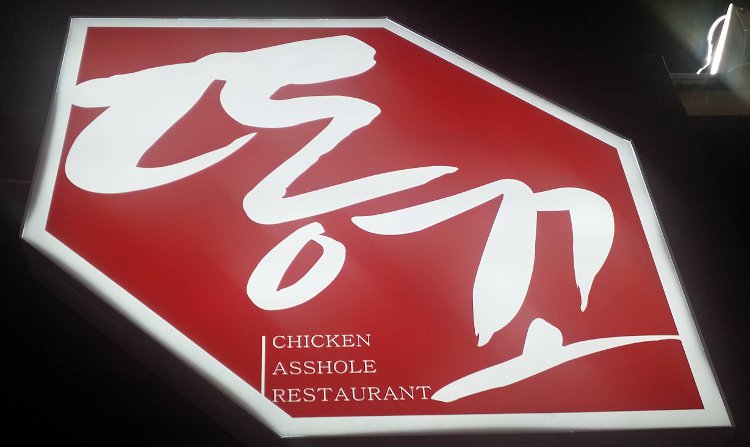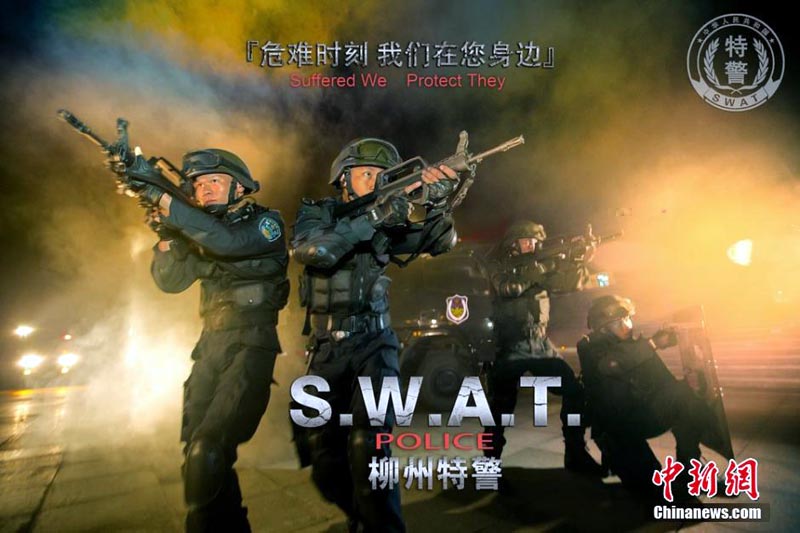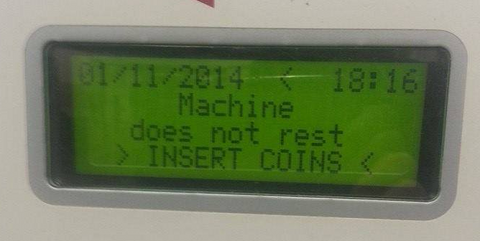Toni Tan writes:
I don't eat out much, but when I do, this is one of my favorite places. The food is spicy; however, I don't think it is cuisine from Szechuan because the dishes aren't oily at all.
The menu items are rather quirkily named (e.g., fish with sour cabbage). In fact, my favorite dish there is called Big Dish — just "Big Dish" — which is an enormous bowl of spicy broth with seafood, tofu, vegetables, and glass noodles.
However, the restaurant's name is what catches everyone's attention and a dead giveaway for why I like it, given my penchant for spicy food.
Their bill holder has also met with much curiosity. I took a picture of their business card and the bill holder for you.
Read the rest of this entry »






